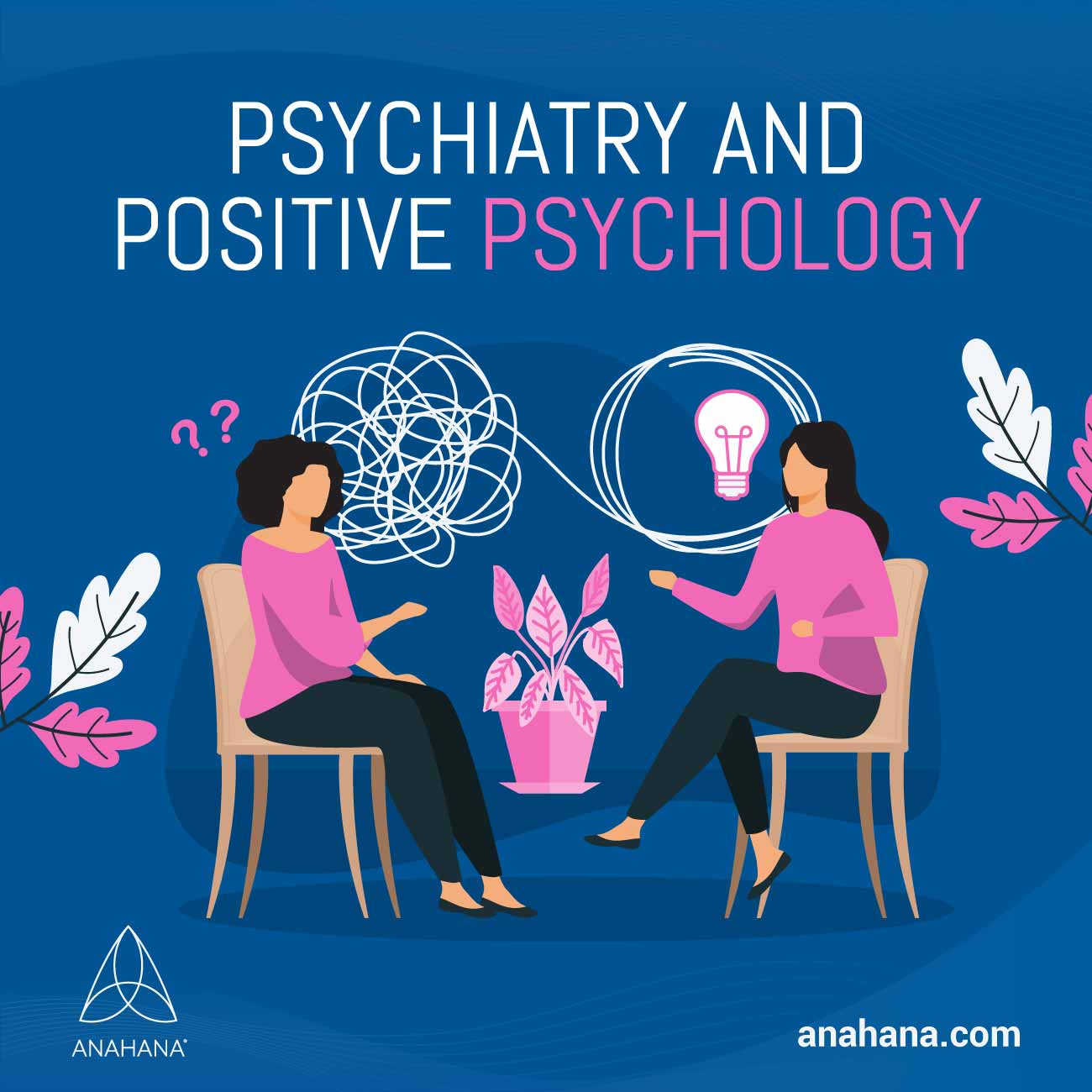
Table of Contents
Meta Title: Positive Psychology: Building Resilience and Finding Fulfillment in Everyday Life
Meta Abstract: Positive psychology is about understanding how people can thrive and find fulfillment by focusing on strengths, resilience, and the positives in life, even during challenges. It's about recognizing that happiness and well-being are attainable through everyday experiences and attitudes.
Positive psychology is about understanding how people can thrive and find fulfillment by focusing on strengths, resilience, and the positives in life, even during challenges. It's about recognizing that happiness and well-being are attainable through everyday experiences and attitudes.
Recap: What are Positive Emotions?
Before we discuss what positive psychology is, it is important to understand what positive emotions are. These emotions are the good feelings we experience, like happiness, gratitude, and love. They form the cornerstone of our well-being and play a significant role in shaping our lives.
As we will learn in a moment, positive psychology aims to understand how these emotions help us thrive while exploring their impact on our mental and emotional states.
What is Positive Psychology?
Positive psychology emerged in the late 1990s, offering a novel perspective on mental health and well-being. Unlike traditional approaches fixated on symptoms, positive psychology prioritizes nurturing overall well-being and leveraging our strengths.
This outlook resonates with therapists and clients alike, as it emphasizes growth and celebrates our inherent talents. It encourages us to move beyond the confines of solely addressing mental health challenges or pathologizing normal emotions and experiences, urging us to embrace a broader vision of self-care.
Moreover, this approach fosters a more inclusive and supportive environment by softening the stigma surrounding getting support for our mental health. It invites acceptance and understanding, fostering self-compassion instead of focusing solely on symptoms or issues.
Origins of Positive Psychology
Abraham Maslow's influential theories on human motivation and the hierarchy of needs served as a catalyst for Martin Seligman, a psychologist of the 20th century and a key figure in the positive psychology movement.
Through his research, Seligman uncovered a profound truth: happiness springs forth from recognizing our own strengths and positive traits.
Seligman's insight illuminates the multifaceted nature of happiness, which can be experienced across three dimensions: the Pleasant Life, the Good Life, and the Meaningful Life.
He proposed that life satisfaction arises from a combination of these domains, highlighting the richness and depth of human well-being.
Positive Psychology Research
As mentioned, research and scientific study in the field of positive psychology done by Martin Seligman focused on figuring out human behavior and how to define well-being. He focused on what makes life enjoyable and fulfilling for humans. He concluded that human flourishing comes from what he calls a Pleasant, Good, and Meaningful Life.
Theories Behind Positive Psychology

Three Paths to Happiness
One of the most popular theories behind positive psychology is the three paths to happiness coined by Martin Seligman. This theory beautifully outlines the main components and the journey toward a truly fulfilling human existence.
The first path, The Pleasant Life, invites us to discover happiness and joy in life's simple pleasures: the warmth of friendships, the aroma of morning coffee, or the embrace of a sunny day.
Moving from The Pleasant Life to The Good Life is a personal choice, requiring us to recognize our own positive emotions, strengths, and character traits. While this journey can be challenging, it's a deeply personal exploration that only we can undertake. It's about realizing the goodness in life on our own terms, recognizing our strengths, and embracing our unique qualities.
Finally, The Meaningful Life represents the culmination of Seligman's theory. It's about harnessing our character traits and strengths to serve a higher purpose, using them to make a meaningful impact in the world. Finding purpose and channeling our strengths toward a greater good is the ultimate pathway to fulfillment and lasting happiness in our personal journey.
PERMA: The Science of Happiness and Well-Being
Seligman developed the PERMA acronym, or PERMA theory, to explain the basics of human thriving. The goal is not just to survive this life but rather to flourish:
-
'P' invites us to embrace positive emotion, nurturing gratitude and forgiveness to illuminate our days with simple joys and heartfelt connections
-
'E' calls us to engage fully, embracing challenges and leveraging our strengths to infuse each moment with purpose and presence
-
'R' reminds us of the power of relationships, where shared experiences and genuine connections become the fertile soil for growth, resilience, and a fulfilling life
-
'M' encourages us to find meaning in our passions, beliefs, and the moments that shape our lives
-
'A' reflects the fulfillment we feel in our achievements at work, in relationships, and in our personal endeavors
In exploring PERMA, we uncover the roadmap to a life rich in happiness, purpose, and well-being.
Character Strength and Virtues
“In the middle of winter I at last discovered that there was in me an invincible summer.” ― Albert Camus, in The Myth of Sisyphus
Similar to ‘engagement’ from PERMA, identifying character strengths and virtues are ways to increase well-being, self-esteem, confidence, and happiness and ultimately lead a longer life full of happiness.
A good way to incorporate this in daily life is to write down character strengths, whether that be resilience, optimism, being kind to others, etc. Recognizing and applying these to daily life have decreased negative emotions.
By recognizing strengths, one can automatically focus on the positives of and ultimately forget any negative, intrusive thoughts they may have about oneself. This is similar to gratitude; by looking at the positive, we are more likely to continue to do this and forget many negative thoughts.
Flow State
Again, like engagement, the flow state is the state in which one is fully focused and immersed in whatever activity being done. By focusing strictly on the task at hand, time seems to stop. We forget time as an objective thing and are completely in the moment. This is similar to meditation, which increases happiness and well-being.
By being completely present, self-awareness disappears; focus is only on the task at hand. This habit can be practiced during any activity throughout the day. Even concentrating solely on unloading the dishwasher can help with being more present and forgetting negative emotions.
Positive Psychology Progress: Extending into Psychiatry

As positive psychology continues to evolve, it is making significant strides into the realm of positive psychiatry, marking a noteworthy departure from its traditional focus. Psychiatry has traditionally focused on identifying and treating mental illness through methods such as medication and therapy, including cognitive behavioral therapy (CBT). However, there's been a noticeable shift within the field towards integrating aspects of positive psychology into clinical practice.
Supported by compelling research, positive psychiatry encompasses four key components: promoting positive mental health outcomes, nurturing psychosocial traits like resilience and optimism, understanding the neurobiological dimensions of positive mental health, and implementing positive interventions in psychiatric care.
Unlike positive psychology, which emphasizes general well-being and personal growth, positive psychiatry tailors its principles and interventions to the unique challenges faced by individuals experiencing mental illness.
The goal of positive psychiatry is to enhance positive mental health outcomes, spanning personal well-being, stress reduction, successful adaptation, growth following trauma, recovery, and prevention of future episodes.
To achieve these outcomes, psychiatrists utilize various positive psychology interventions, such as setting meaningful goals, fostering optimism, and helping individuals recognize and leverage their strengths in daily life.
How to Practice Positive Psychology at Home
Positive psychology offers a treasure trove of practices you can seamlessly integrate into your daily life, especially during challenging times. The point of positive psychology isn't to suppress negative feelings or invalidate ourselves.
Instead, it encourages us to acknowledge and work through difficult emotions as we strive for resilience and positivity. Suppressing difficult emotions would only hinder our growth, especially since they are important signals about our environment and lives.
Here are some positive psychology techniques you can try at home.
Cultivate Gratitude
Cultivating gratitude may seem challenging at first, but over time, your brain may naturally lean towards this way of thinking. Start by acknowledging both big and small things you're grateful for each day. Consider keeping a gratitude journal to track your thoughts and reflections while helping you stay in the present moment.
Undo the Grip of Negativity Bias
Positivity changes how your mind works. Positivity doesn’t just change the contents of your mind, trading bad thoughts for good ones; it also changes the scope or boundaries of your mind. It widens the span of possibilities that you see”― Barbara L. Fredrickson, Positivity: Top-Notch Research Reveals the 3 to 1 Ratio That Will Change Your Life
Negativity bias refers to the tendency to pay more attention to negative experiences or information than positive ones. At times our minds can have a default setting to notice the bad stuff more than the good. But here's the thing: we can work on it!
Try cognitive reframing. It's about consciously choosing to see the good things that came from past failures and tough situations. Instead of getting stuck in the negatives, we shift our focus to the bright spots. This practice isn't just about being positive—it's about building up our resilience and finding strength in the midst of challenges.
Positive Writing
Take some time each day to engage in positive writing exercises. Reflect on moments of joy, accomplishments, or acts of kindness you've experienced or witnessed. Writing about these positive experiences can lift your spirits and enhance your overall sense of well-being.
Kindness
Practice acts of kindness towards yourself and others on a daily basis. Whether it's offering a helping hand to a friend or engaging in self-care activities, kindness breeds positivity and connection. Participate in random acts of kindness, such as leaving an encouraging note for a coworker or paying for someone's coffee in line behind you.
Make Meaning
Set goals that resonate deeply with your values and dreams. Break them down into practical steps using the SMART goals technique—make them specific, measurable, achievable, realistic, and time-bound.
This method keeps you on track and fuels your drive towards your desired outcomes. Recognize your strengths and seek opportunities to apply them in various aspects of your life. Whether through hobbies, giving back to your community, or pursuing your career, harnessing your strengths enriches your sense of purpose and fulfillment.
Remember that the pursuit of well-being is not just a destination but a continuous process. Embrace the practices of gratitude, kindness, and goal-setting as companions along your path. In celebrating the small victories and embracing the lessons of setbacks, you'll find the seeds of resilience and joy blooming within you.
Benefits of Positive Psychology
Connect with Your Authentic Self
Positive psychology gently guides us towards authenticity, encouraging us to embrace our true selves without judgment or pretense. It's about digging beneath the surface and discovering the unique qualities and values that make us who we are. By aligning with our authentic selves, we cultivate a sense of inner peace and fulfillment that radiates outward.
Emotional Resilience
In the face of life's inevitable challenges, positive psychology equips us with the tools to cultivate emotional resilience. It's not about avoiding difficulty, but about developing the inner strength to navigate adversity with courage and grace. Through practices like mindfulness, self-compassion, and emotional regulation, we learn to adapt and bounce back from setbacks, emerging stronger and more resilient in the process.
Positive Relationships
Positive psychology underscores the importance of meaningful connections – both with ourselves and with others. By cultivating self-awareness, we deepen our understanding of our own needs and emotions while also fostering empathy and compassion for those around us. These connections provide sustenance for the soul, offering support, validation, and a sense of belonging that enriches our lives immeasurably.
Live Wholeheartedly
At its core, positive psychology encourages us to embrace the richness of the world around us. It's about finding beauty in the ordinary, experiencing gratitude for the simple pleasures, and cultivating a sense of wonder and curiosity about the world. By shifting our perspective and embracing a mindset of abundance, we open ourselves up to new experiences, perspectives, and opportunities for growth.
Frequently Asked Questions
How does positive psychology tackle relationship challenges?
In relationships, positive psychology takes a practical approach, focusing on strengths, resilience, and effective communication. It encourages reflection on past experiences, including failures, as opportunities for growth.
Promoting empathy, understanding, and collaborative problem-solving, is how positive psychology helps us navigate challenges while fostering healthy relationship dynamics.
Is positive psychology about always feeling happy and positive?
Not at all. Positive psychology acknowledges that it is natural to feel the full spectrum of emotions, including the tough ones. It involves being real and honest about what we're feeling, while also building up our resilience and coping skills.
Positive psychology shows us that by embracing and working through those tough emotions, we can actually deepen our emotional well-being and create even more genuine connections with others.
How can positive psychology foster intimacy and connection in long-term relationships?
Positive psychology emphasizes the importance of nurturing intimacy and connection in long-term relationships. Techniques such as expressing gratitude, engaging in shared activities, and prioritizing quality time together can deepen emotional bonds and sustain passion and closeness over time.
References
Abraham Maslow and the Hierarchy of Happiness
Martin Seligman & Positive Psychology: Theory and Practice
PERMA™ Theory of Well-Being and PERMA™ Workshops
Martin Seligman and the Rise of Positive Psychology
Disclaimer
The contents of this article are provided for informational purposes only and are not intended to substitute for professional medical advice, diagnosis, or treatment. It is always recommended to consult with a qualified healthcare provider before making any health-related changes or if you have any questions or concerns about your health. Anahana is not liable for any errors, omissions, or consequences that may occur from using the information provided.

By: Anahana
The Anahana team of researchers, writers, topic experts, and computer scientists come together worldwide to create educational and practical wellbeing articles, courses, and technology. Experienced professionals in mental and physical health, meditation, yoga, pilates, and many other fields collaborate to make complex topics easy to understand.
